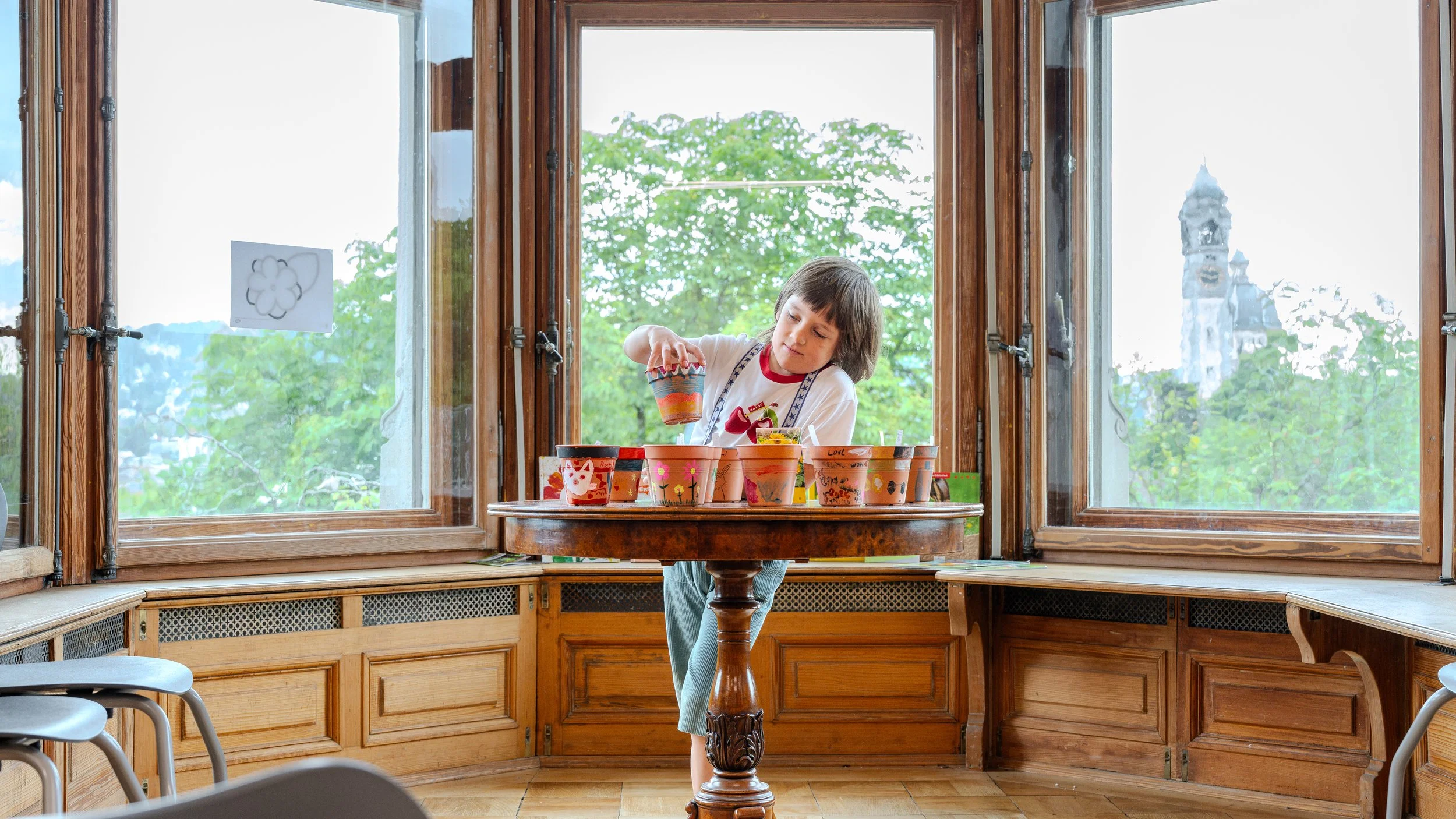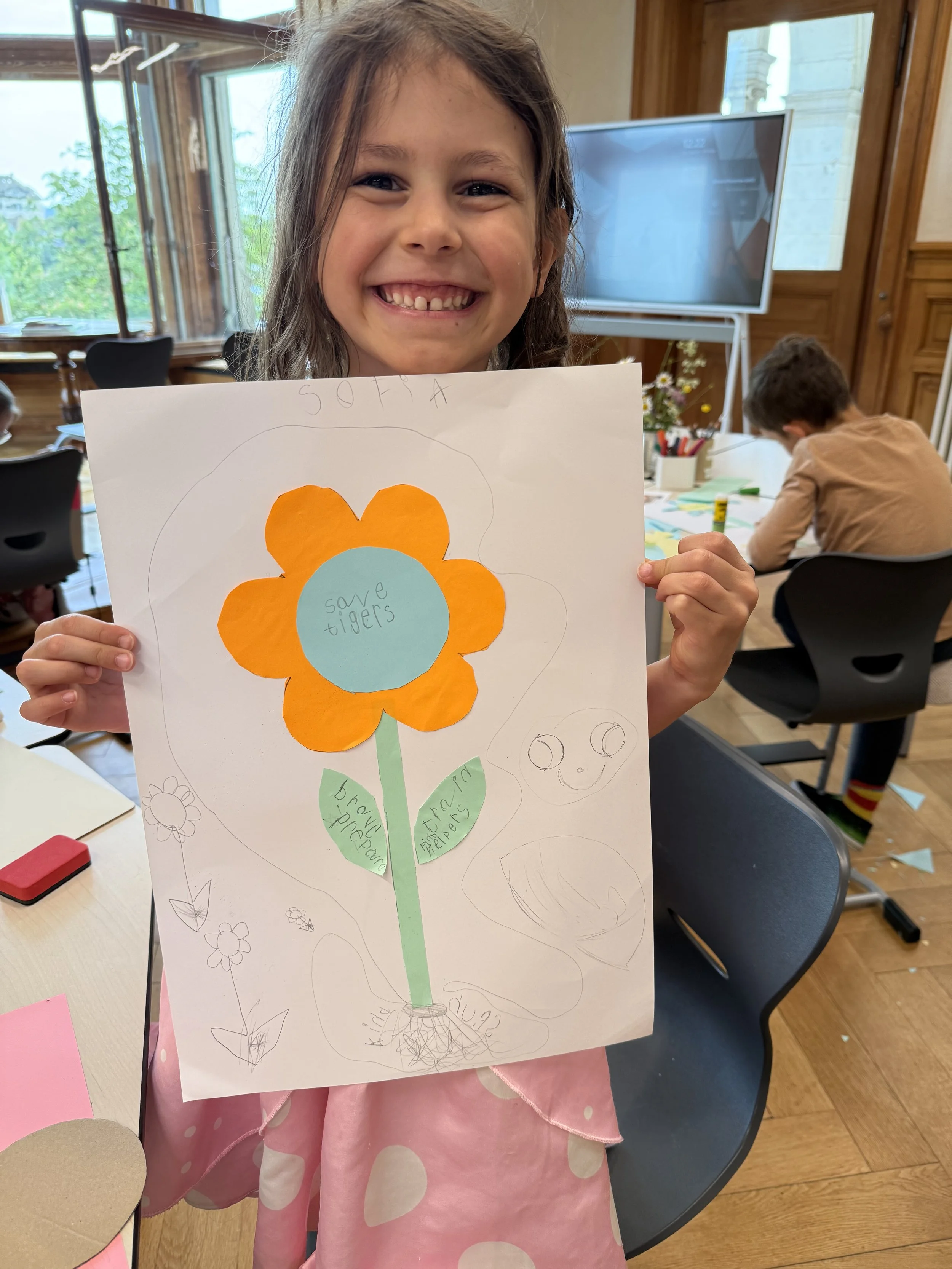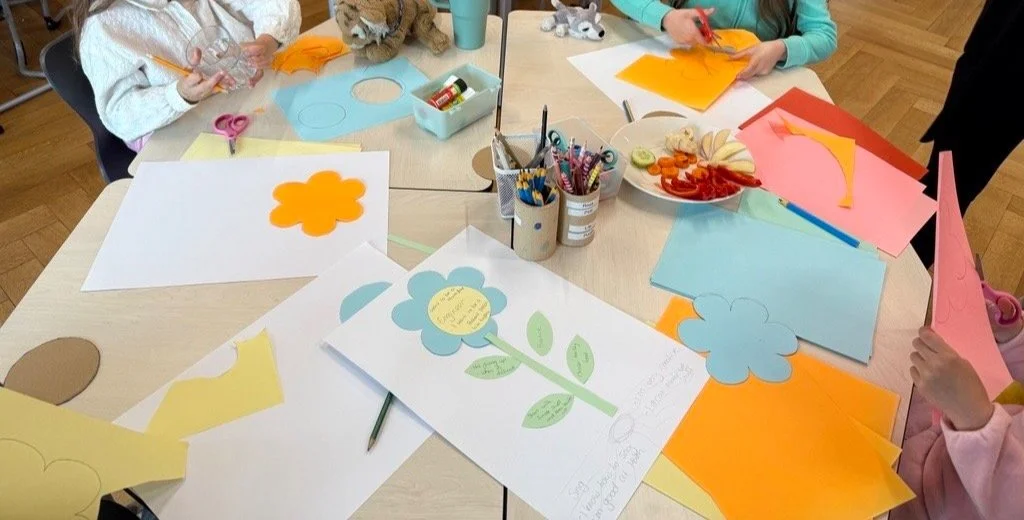Growth Mindset: What It Is and How We Bring It to Life at School of Tomorrow
"When you go from a fixed mindset to a growth mindset, a new world of possibilities opens up."
At School of Tomorrow, we believe that how children think about learning is just as important as what they learn. That is why we integrate growth mindset into our everyday approach to teaching and learning.
What is a growth mindset?
A growth mindset is the belief that abilities and intelligence can be developed through effort, perseverance, and learning. Children (and adults!) with a growth mindset understand that talents and skills can grow over time through dedication and hard work. They view challenges as opportunities to grow, embrace mistakes as part of the learning process, and are more likely to persist in the face of setbacks. This mindset encourages continuous learning, resilience, and a positive attitude toward learning new things.
In contrast, a fixed mindset is the belief that intelligence and abilities are static and cannot change. People with a fixed mindset may think that their skills are innate, so they either “have it” or they do not. They tend to avoid challenges, give up more easily when faced with obstacles, and view effort as a sign of incompetence. They often avoid tasks where they fear failure, believing that mistakes reflect poorly on their abilities rather than seeing them as part of the learning process.
Growth mindset and education: Why is it so important?
These mindsets play a significant role in shaping how children approach school and learning.
For example, a student with a growth mindset might tackle a difficult math problem and say, "This is hard, but if I keep practicing, I will get better." They view the problem as a chance to improve their skills. On the other hand, a student with a fixed mindset might think, "I am just not good at math," and may give up after a few attempts, believing their abilities are limited and unchangeable.
Similarly, when learning to read, a child with a growth mindset who struggles with a new book may think, "I have not mastered this yet, but I can keep practicing and improve." They focus on the progress they can make. A student with a fixed mindset may avoid reading challenging books altogether, thinking, "I am a slow reader, and I will never get better," which limits their potential for growth. Encouraging a growth mindset in education can help students become more resilient, motivated, and eager to learn.
A common trait in students with a fixed mindset is that they often shy away from bigger challenges, because "failing" would potentially expose their inability and would in a way "unmask" them, showing that indeed they are not perfect (no one is!). Therefore, it is often even the case that academically strong students can develop a fixed mindset if they only get praise for their results. That is why at School of Tomorrow we always try to highlight and praise the importance of practice, trial and error, experimentation, making mistakes, questioning, and in general "effort before results".
How is the growth mindset practiced at School of Tomorrow ?
At School of Tomorrow, Growth Mindset is more than just a concept – it is a key part of our everyday approach to learning. We help children understand that mistakes are a natural and valuable part of the learning process, and that effort, curiosity, and persistence help our brains grow stronger.
We bring Growth Mindset into our everyday interactions through how we speak with children, how we encourage reflection, and how we support their problem-solving. We believe in the power of words and use positive, effort-focused language. We celebrate effort, strategies, and progress rather than just results. You will often hear phrases like: "You worked really hard on that!", "I noticed you did not give up.", or “You cannot do it… yet.”
The power of yet helps children understand that learning takes time and that ability grows through practice.
We also create regular opportunities for children to reflect on their learning and share their thoughts in group discussions. These conversations build self-awareness and help them see that everyone learns in their own way and at their own pace.
What does this look like in everyday life?
Here are some of the ways we incorporate growth mindset into daily learning:
Group and one-on-one discussions, where children respond to reflective questions and share recent successes or challenges
Individualized goal-setting, where children reflect on what they want to improve and set personal goals
Story-based discussions that focus on perseverance, resilience, and learning from mistakes
Daily feedback and language that focus on the learning process and effort rather than perfection
Self-awareness exercises in which children learn to name and understand their emotions and experiences
Teamwork and games, where children are encouraged to support and motivate each other
Now it is your turn: the growth flower
Try this simple and creative activity to help you practice and strengthen your growth mindset.
You need:
A blank sheet of paper
Colored pencils
Scrap paper or colored paper
Instructions:
Draw a flower or make one out of recycled paper (there are no limits to your creativity!) - including all the important parts: Roots, stems, leaves and a blossom on top.
Label each part according to the following meanings:
Roots: They stand for your personal strengths - i.e. characteristics, habits or skills that give you stability and support you.
Leaves: They symbolize what you still want or need to learn - areas in which you are actively growing.
The flower: This symbolises your goals - what you are reaching for, your hopes, and what success looks like to you.
This visual metaphor helps you reflect on where you are, what supports you, and where you want to go - key steps in developing a growth mindset.



